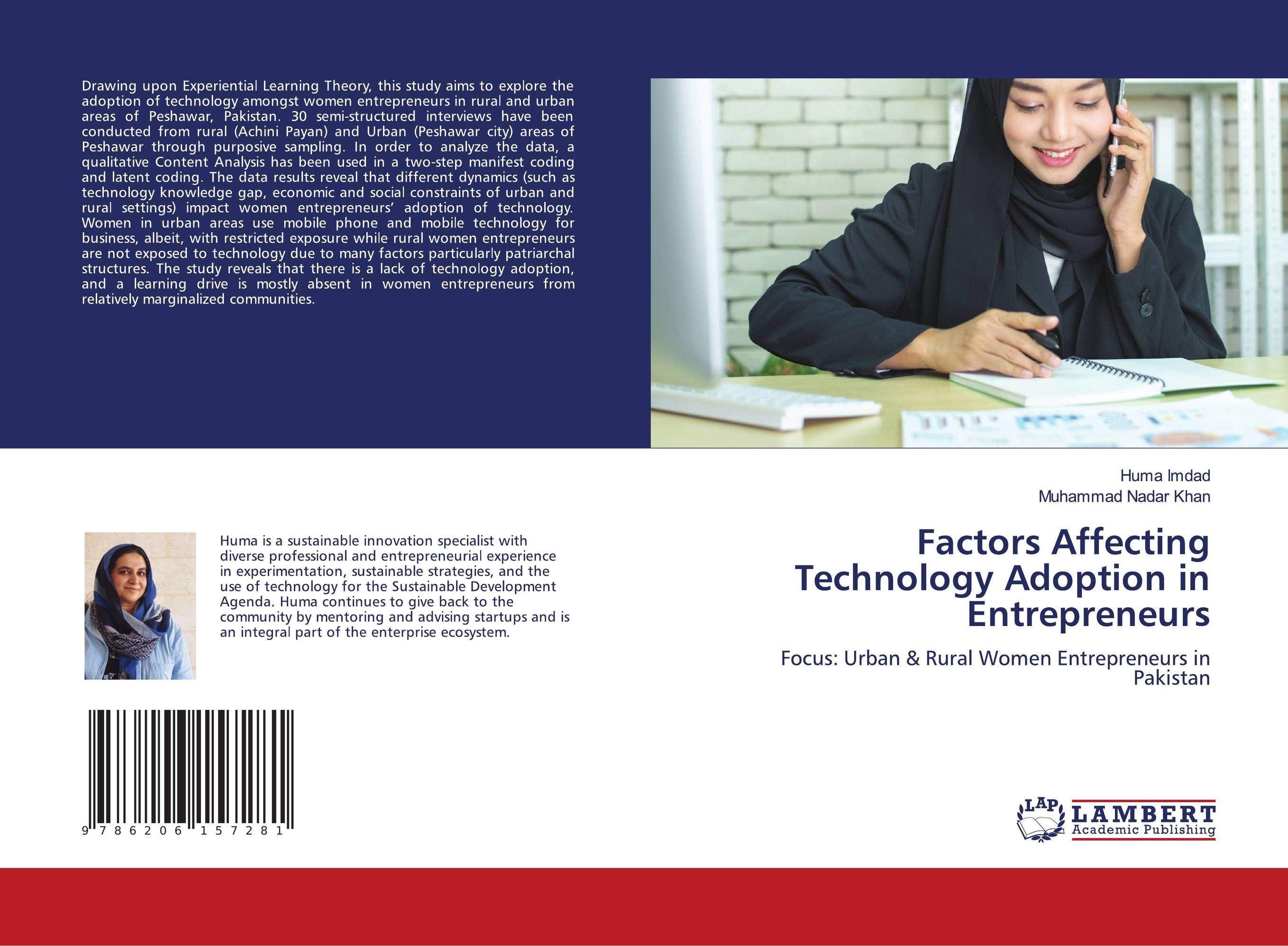| Поиск по каталогу |
|
(строгое соответствие)
|
- Профессиональная
- Научно-популярная
- Художественная
- Публицистика
- Детская
- Искусство
- Хобби, семья, дом
- Спорт
- Путеводители
- Блокноты, тетради, открытки
Factors Affecting Technology Adoption in Entrepreneurs. Focus: Urban & Rural Women Entrepreneurs in Pakistan

В наличии
| Местонахождение: Алматы | Состояние экземпляра: новый |

Бумажная
версия
версия
Автор: Huma Imdad and Muhammad Nadar Khan
ISBN: 9786206157281
Год издания: 1905
Формат книги: 60×90/16 (145×215 мм)
Количество страниц: 52
Издательство: LAP LAMBERT Academic Publishing
Цена: 24860 тг
Положить в корзину
Позиции в рубрикаторе
Сферы деятельности:Код товара: 758657
| Способы доставки в город Алматы * комплектация (срок до отгрузки) не более 2 рабочих дней |
| Самовывоз из города Алматы (пункты самовывоза партнёра CDEK) |
| Курьерская доставка CDEK из города Москва |
| Доставка Почтой России из города Москва |
Аннотация: Drawing upon Experiential Learning Theory, this study aims to explore the adoption of technology amongst women entrepreneurs in rural and urban areas of Peshawar, Pakistan. 30 semi-structured interviews have been conducted from rural (Achini Payan) and Urban (Peshawar city) areas of Peshawar through purposive sampling. In order to analyze the data, a qualitative Content Analysis has been used in a two-step manifest coding and latent coding. The data results reveal that different dynamics (such as technology knowledge gap, economic and social constraints of urban and rural settings) impact women entrepreneurs’ adoption of technology. Women in urban areas use mobile phone and mobile technology for business, albeit, with restricted exposure while rural women entrepreneurs are not exposed to technology due to many factors particularly patriarchal structures. The study reveals that there is a lack of technology adoption, and a learning drive is mostly absent in women entrepreneurs from relatively marginalized communities.
Ключевые слова: Women Entrepreneurs, Technology Adoption, qualitative, experiential learning



